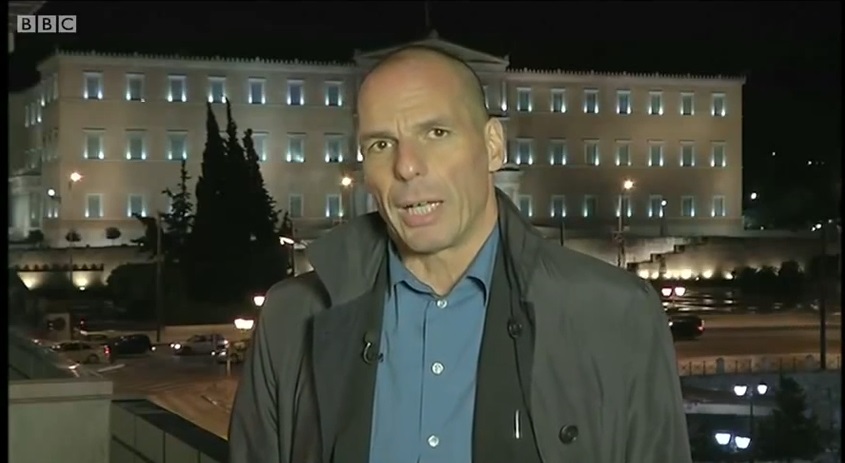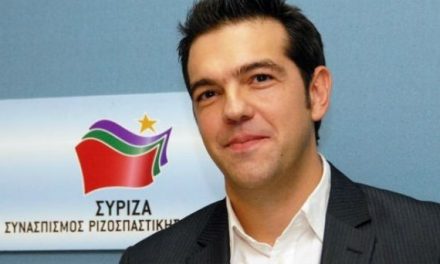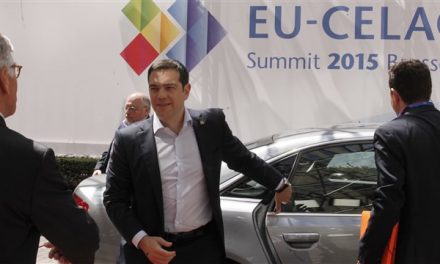By Frances Copolla, Forbes
The new Finance Minister of Greece has been making waves. In a meeting with Eurogroup chairman Jeroen Dijsselbloem on January 30th he appeared to say that Greece would no longer cooperate with the Troika – the combination of the IMF , European Commission and the ECB that has been running Greece’s bailout programme. Dijsselbloem’s face was an absolute picture, as FT Alphaville gleefully reported.
Except, of course, that Varoufakis was speaking in Greek, so this isn’t what he actually said. And Dijsselbloem, who was listening via a translation service, did not hear what he actually said. Nor did the world’s journalists, who by and large also don’t speak Greek. Varoufakis (who is bilingual) later said that he perhaps should have made his remarks in English.
Nonetheless, his apparent refusal to deal with the Troika made headline news. The BBC’s headline claimed he said “No debt talks with EU-IMF Troika”. The FT put up an inflammatory headline saying that Varoufakis was refusing to work with the Troika. But the FT’s report explains it differently:
Mr Varoufakis….said Greece “is working from the standpoint of the best possible co-operation with its institutional partners and the International Monetary Fund but not with a [bailout] program that we think is anti-European.”
Eh? How is this “refusing to cooperate”? The reporters continue (my emphasis):
He also blasted the deeply unpopular bailout monitors from the European Commission, IMF and ECB, also known as “the troika”, saying: “We are not going to co-operate with a rottenly constructed committee.”
Ah. The problem is what is meant by “the Troika”. In an interview with Emily Maitlis on the BBC’s Newsnight program later on January 30th, Varoufakis explained (in English) that the Troika has two levels: the institutions themselves, and the “bailout monitors” they have sent to Athens to ensure compliance with program demands. It is these monitors who have been rejected.
So Varoufakis is not refusing to cooperate with the European institutions and the IMF. On the contrary, he says he wants a “rational discussion” with them. He is repudiating the bailout program that they have constructed.
But why is he repudiating the bailout program? Varoufakis gave Maitlis an everyday example to explain his reasoning (my emphasis):
Suppose a friend of yours were to come to you and say that he or she had difficulty paying the mortgage because of a reduction in their income – they lost their job or something like that. They have a great idea on how to solve this problem: they would get a credit card and draw money from it in order to meet the mortgage payments for the next few months. Would you advise them that they should continue to take these tranches of loans from the credit card in order to deal with what is essentially an insolvency problem?
The new finance minister has admitted that Greece is bankrupt.
Astonishingly, Maitlis completely ignored this. How any decent journalist could let such an opportunity pass is beyond me. It is the heart of the matter.
Everyone knows Greece is insolvent, of course, but no-one has ever stated it officially. The Troika’s position is that Greece’s problem is a temporary liquidity shortfall: lending it more money so it can meet current debt service obligations is justified because structural reforms will lead to renewed growth and increased income, enabling it to meet its obligations (including those for the new loans) in the future. But Varoufakis disagrees with this interpretation. His view is that while things remain as they are, Greece will never recover. The bailout program locks it into a debt deflationary spiral which simultaneously reduces its income and increases its debt burden. Continuing to accept more loans in order to meet debt service obligations only makes matters worse. What is needed is debt restructuring coupled with measures to restore growth.
It is certainly difficult to see that the bailout program has been successful. Five years on, and despite a private sector debt restructuring, the Greek economy remains deeply depressed. But of course Greece has resisted the structural reforms imposed by the Troika. Some think that if Greece had implemented them more enthusiastically, it might now be in better shape.
Varoufakis made it clear in the Newsnight interview that he is by no means opposed to structural reforms:
We do not want to reverse structural reforms. We want to deepen and extend them.
But he is deeply critical of the reforms imposed under the bailout terms, which he says do not address the “malignancies” of the Greek economy. He complains that the privatization program is a fire sale: the proceeds do not go into new investments or tax cuts, but simply go to meet debt service. Selling the family silver simply staves off default for a little longer. It does not restore Greece’s income. And nor would decades of cost-cutting and tax raising to put Greece’s debt/GDP ratio on a sustainable path. The large primary surpluses forecast by the Troika would squeeze all demand out of the economy. They are almost certainly impossible to achieve, and even if they were achievable, it is questionable whether they would restore the public finances anyway. The prospect of severe austerity for years to come is a serious disincentive to hard work and enterprise, which is what is really needed in Greece. If all your output disappears down the black hole of debt service, why bother?
Varoufakis wants an end to the policies that entrench debt deflation. “The crisis of the last five years has been detrimental to the whole continent”, he says. “We want to end this”.
He is calling for a New Deal, not only for Greece but for the rest of Europe. Many would echo his sentiment.



















